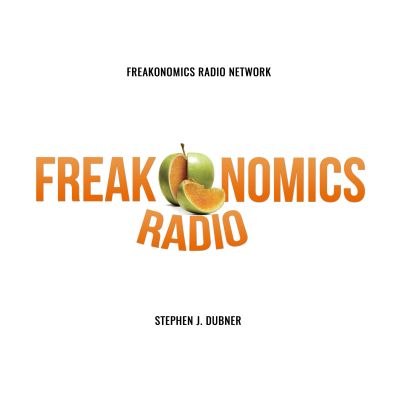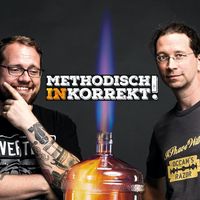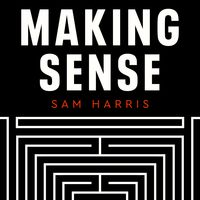Freakonomics co-author Stephen J. Dubner uncovers the hidden side of everything. Why is it safer to fly in an airplane than drive a car? How do we decide whom to marry? Why is the media so full of bad news? Also: things you never knew you wanted to know about wolves, bananas, pollution, search engines, and the quirks of human behavior. Join the Freakonomics Radio Plus membership program for weekly member-only episodes of Freakonomics Radio. You’ll also get every show in our network without ads. To sign up, visit our show page on Apple Podcasts or go to freakonomics.com/plus.
https://freakonomics.com
Gesamtlänge aller Episoden: 21 days 22 hours 7 minutes
recommended podcasts
episode 247: 247. How to Win Games and Beat People
Games are as old as civilization itself, and some people think they have huge social value regardless of whether you win or lose. Tom Whipple is not one of those people. That's why he consulted an army of preposterously overqualified experts to find the secret to winning any game.
episode 246: 246. How to Get More Grit in Your Life
The psychologist Angela Duckworth argues that a person's level of stick-to-itiveness is directly related to their level of success. No big surprise there. But grit, she says, isn't something you're born with -- it can be learned. Here's how.
episode 245: 245. Being Malcolm Gladwell
"Books are a pain in the ass," says Gladwell, who has written some of the most popular, influential, and beloved non-fiction books in recent history. In this wide-ranging and candid conversation, he describes other pains in the ass -- as well as his passions, his limits, and why he'll never take up golf.
episode 244: 244. How to Become Great at Just About Anything
What if the thing we call "talent" is grotesquely overrated? And what if deliberate practice is the secret to excellence? Those are the claims of the research psychologist Anders Ericsson, who has been studying the science of expertise for decades. He tells us everything he's learned.
episode 243: 243. How to Be More Productive
It's Self-Improvement Month at Freakonomics Radio. We begin with a topic that seems to be on everyone's mind: how to get more done in less time. First, however, a warning: there's a big difference between being busy and being productive.
episode 242: 242. Is the World Ready for a Guaranteed Basic Income?
A lot of full-time jobs in the modern economy simply don't pay a living wage. And even those jobs may be obliterated by new technologies. What's to be done so that financially vulnerable people aren't just crushed? It may finally be time for an idea that economists have promoted for decades.
episode 241: 241. Are Payday Loans Really as Evil as People Say?
Critics -- including President Obama -- say short-term, high-interest loans are predatory, trapping borrowers in a cycle of debt. But some economists see them as a useful financial instrument for people who need them. As the Consumer Financial Protection Bureau promotes new regulation, we ask: who's right?
The Economics of Sleep, Part 2 (Rebroadcast)
People who sleep better earn more money. Now all we have to do is teach everyone to sleep better.
The Economics of Sleep, Part 1 (Rebroadcast)
Could a lack of sleep help explain why some people get much sicker than others?
episode 240: 240. Yes, the American Economy Is in a Funk -- But Not for the Reasons You Think
As sexy as the digital revolution may be, it can't compare to the Second Industrial Revolution (electricity! the gas engine! antibiotics!), which created the biggest standard-of-living boost in U.S. history. The only problem, argues the economist Robert Gordon, is that the Second Industrial Revolution was a one-time event. So what happens next?








































